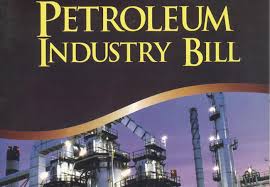The Passage of the Petroleum Industry Bill, PIB 2020 has been in front burner since the two chambers of the National Assembly passed the bill. It has continued to generate discourse for some time now.
The design of the tax fiscal element in PIB 2020 is similar to the elements in NPFP 2017 and even PIFB 2018 shifting from a single tax system – the petroleum profit tax, to a dual tax system of hydrocarbon resource tax and corporate income tax, which is an acceptable practice in other regions.
The proposed royalty scheme–fixed and flat rate by terrain and royalty tied to value–show some degrees of fiscal progressivity similar to what is being practice in other jurisdictions as well.
The proposed incentives in PIB 2020 show a clear departure from traditional effort-based incentives (ITA/ITC) to the more modern output-based incentives in the form of production allowance, generous capital.
Omowumi Iledare stated the above at the PWI At SPE Abuja Technical Meeting On PIB 2020 Anchors, July 22, 2021.
OMOWUMI O. ILEDARE, is a PhD holder, he is a Senior Fellow, USAEE, Fellow NAEE, Fellow EI Professor Emeritus in Petroleum Economics & Policy Research, LSU Center for Energy Studies, USA. He is also the GNPC Petroleum Commerce Research Chair, UCC Oil & Gas Studies, Cape Coast, Ghana. He takes a look at the matters arising from PIB 2020.

Iledare
Allowance and Cost Management.
Worldwide, fiscal systems are designed to encourage substantial and progressive investment in the industry, while balancing rewards with risk and enhancing revenues to the host government, based on mutuality of interests.
The existing fiscal components and other fiscal laws in Nigeria may not necessarily attract investors, except the ongoing reforms in the PIB 2020 fiscals are appropriately with effective, efficient, equitable and ethical governance structure.
The proposed dual tax system may result in a lower effective tax rate significantly than the existing single tax rate and may perhaps improve international perception of Nigeria fiscal competitiveness complimenting it’s highly geologic prospects .
It would seem that the important fiscal regime levers, such as royalty, profit split, cost recovery limit and taxation mechanism in PIB 2020 are based on core principles of fiscal rules of general applications. Interestingly, with natural gas development, the fiscals has disavowed optimization revenue extraction in favor of economic expansion. Using gas as an engine to propel the economy.
A vital component of reforms to promote competitiveness and attractiveness for Nigeria’s fiscal regime has been noticeably complemented with clearly defined roles for institutional organs of government — policy, commercial and regulatory. If PIB 2020 is to create value as intended and designed, the implementation strategy has to be holistic, inclusive, and patriotic in orientation towards national development with zero tolerant for Esau’s syndromic mindset.

Iledare
Matter Arising From PIB Provision on Host Community Development
Matter arising from PIB provision on Host Community development is unnecessary trouble but good trouble with tangible benefits, Blurred and contentious Deepwater HC designations, Volatility and insufficiency because of heterogeneity of funding sources, Unlimited wants in the face of limited resources, Overcoming elite capture and Esau’s syndrome of the society, Perhaps a wishful thinking but I wish the doctrine of necessity can be invoked to use a fraction of royalty revenue to fund the HCTF instead of a fraction of OPEX.
Dual Regulators and Management Diseconomies
Technical capacity limitations not addressed and redundancy of staff more likely than not because of staff legislative absorption. The authority Board appointment is prone to winner takes all prebendalism.
Ill-Equipped Ministerial Technical Staff for Continuity and Functional Demand
Restructure, Rebrand and Rekindle Ministry Staff, Professional staff tracked with appropriate reward adding that government must limit dependence on NNPC for non-budgetary spending, supplier of last resort very misleading.
“Managing escrow for frontier exploration fund, a departure from commerciality function and may be burdensome. I wonder aloud why a risk averse investor can spend 30% of PO and PG for frontier exploration. Legislating how a CAMA liability company should allocate fund is worrisome, what is then the purpose of a board of 30% PO and PG allocation to NNPC conjectural and perhaps dictatorial to an apolitical
Bod Mandating Inter Agency Meeting Not Strong Enough Director
Territorial protection may lead to inefficacy of institutions and ineffectiveness, creating low public policy perception. So also mandatory Interagency meeting may improve transparency and accountability, enables shared vision and minimize institution, regulatory and elite capture

Iledare
Potentially Over-Bearing Role for Settlor?
There is need to ensure this does not become a settlor affiliate, on the other hand, lessons from NDDC demand this approach Tax deductibility places additional fiscal burden on Government but perhaps a win-win situation if agitation stops. Increases unit technical cost of operations. Reduced government take and investor returns Is a holistic, streamlined approach not better for development? or is it too late? OPEX is more likely than not to be stochastic.
Derivation, NDDC, Niger Delta Ministry Proposed legislation did not quite address the “ownership and participation” questions, adding that the use of royalties is global best practice – another “palliative”?
Equity participation according to him is also a viable option eg Indorama Eleme Petrochemicals, Less external involvement in management and control of trust fund.
Core Objectives Of The Provision On Governance And Institutions
Create efficient and effective governing institutions with clear and separate roles for the petroleum industry.
Establish a framework for the creation of commercially oriented and profit driven petroleum entities that ensures value addition and internationalization of the petroleum industry, Promote transparency and accountability in the administration of the petroleum resources of Nigeria and Create a conducive business environment for petroleum industry operations.
PIB 2020 Main Attributes, Characteristics And Deliverables Restructured, Rebranded, Rekindles Institutions.
Separation of roles–policy, commercial and regulatory functions well defined Value-Creation Acreage Management & Adminstration.
Discretionary award renounced and relinquishment terms articulated Attractive, Competitve and Progressive Fiscal and Contract Terms.
Investment focus fiscals, perhaps, because COVID 19 impact and Zero Carbon Target Host Community Inclusiveness and Optimization of Community Development Benefit sharing with host communities Transparency, Accountability, Stability and Sustainability.





